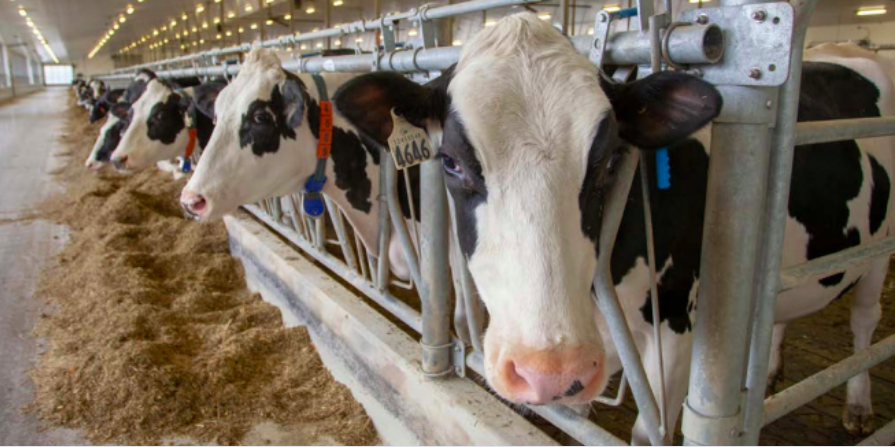The mysteries of debilitating and costly postpartum diseases in dairy cattle are being unlocked by Food from Thought research.
“During the time just after calving, cows are susceptible to health problems,” says Dr. Eduardo Ribeiro, professor in the Department of Animal Biosciences at the University of Guelph. “In fact, about one in three dairy cows have at least one clinical disease in the first three weeks after calving.”
He says most diseases like retained placenta, metritis (infection of the uterus) and mastitis (infection of the udder) are diagnosed and most animals recover. But his previous research showed serious long-term effects in cows contracting the disease in the first place.
“They produced less milk, were less likely to become pregnant and more likely to lose a pregnancy,” Ribeiro says.
Cows that had clinical disease in the first three weeks postpartum were more likely to leave the herd – either by being sold or dying – by 300 days after calving than cows that did not have clinical disease in the first three weeks. Multiple diseases magnified the problem.
Postpartum health is a big issue in Canada, where in 2021, dairy farms generated nearly $7.4 billion in farm cash receipts and supplied a milk manufacturing sector worth $16.2 billion.
Costly consequences
For farmers, these problems lead to costly treatments, reduced milk production and the potential loss of income from having to cull cows. The U of G researchers also considered economic factors.
“While it varies depending on the production system, a single problem in a single cow can cost $600, and if there are multiple problems, it can reach $1,200,” says Ribeiro.
The research
Until now, the biological mechanisms that affected lactation and reproductive performance over the long term were unknown. Ribeiro and his team wanted to unravel some of the mystery.
They suggested long-term effects on milk production could be linked to feeding behaviour, feed intake and the microbial population in the rumen. They also thought the long-term reproductive effects could result from changes in the uterus because of the early disease.
To investigate the first hypothesis, they studied 250 lactating dairy cows at the state-of-the-art Ontario Dairy Research Centre in Elora, Ont., collecting data on postpartum health, feeding behaviour and feed intake. They also took blood and ruminal fluid samples at three weeks (short-term) and 10 weeks (long-term) postpartum.
For the second hypothesis, they collected postpartum health information, blood samples and uterine flushings in 100 lactating cows.
The results
They found that, while the short-term effects of the diseases were serious, milk production suffered no long-term effects due to feeding behaviour, feed intake and rumen microbial populations. The team plans to focus instead on epithelial cells of the mammary gland and how they are affected by postpartum disease and inflammation.
On the reproductive side, the team found small but important changes in the concentration of metabolites in the uterine flushings in cows with different postpartum health issues. They’ll now look at how these metabolites affect the cow’s pregnancy and whether dietary changes can improve outcomes.
Ribeiro says good management practices and prudent investments, especially in areas like housing and nutrition, can prevent or reduce postpartum health problems.
“Making sure the cows are comfortable and fed properly are the two most important ways to avoid problems,” he says. “We’re looking at preventing problems in the first place, but when they do happen, we’re looking to minimize the consequences.”
This story is a part of the 2021-22 Food from Thought Annual Impact Report


